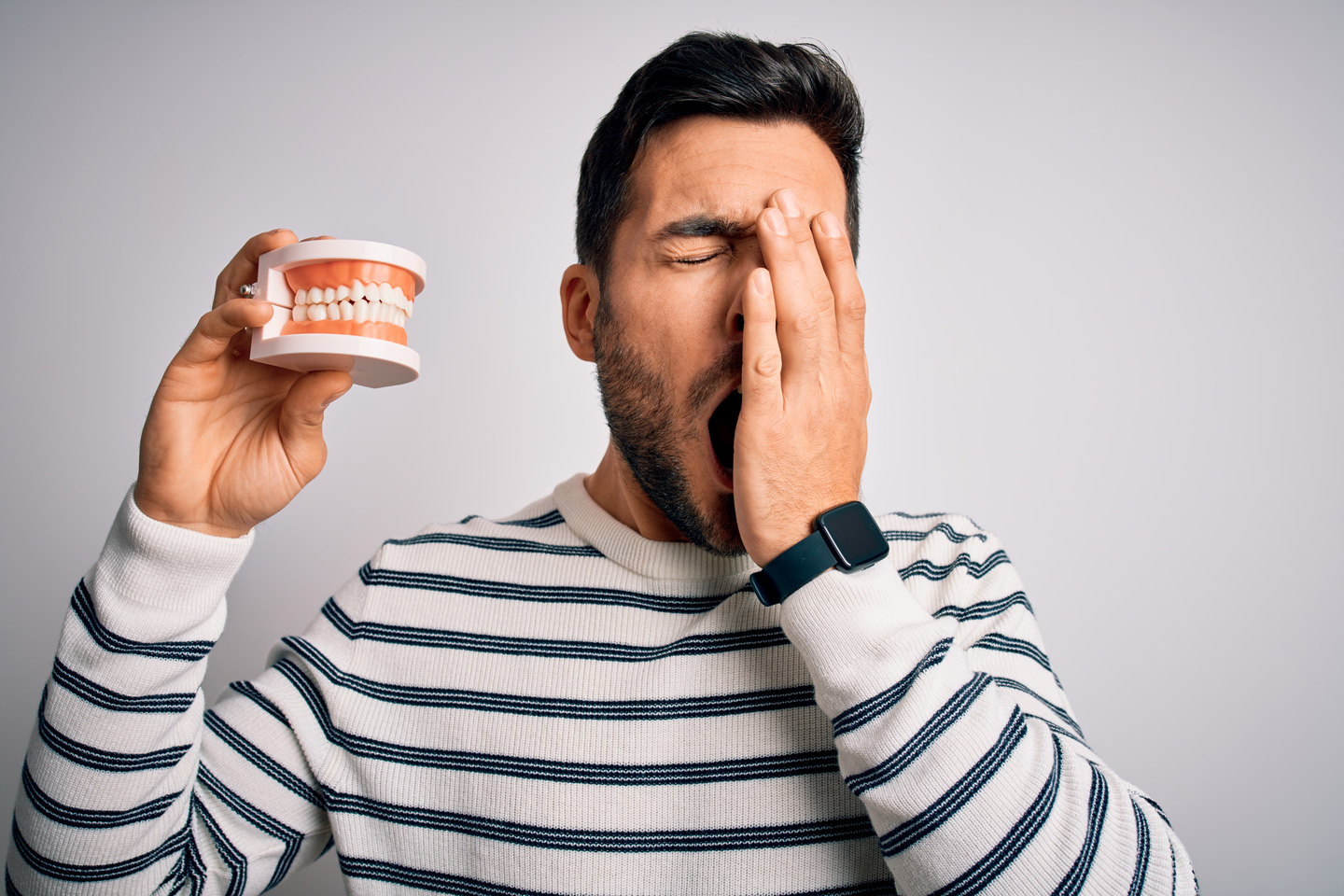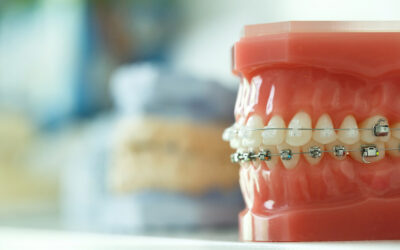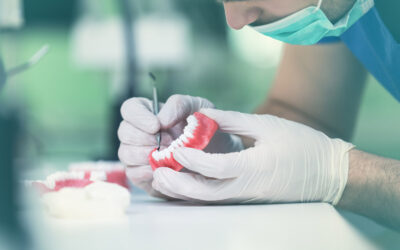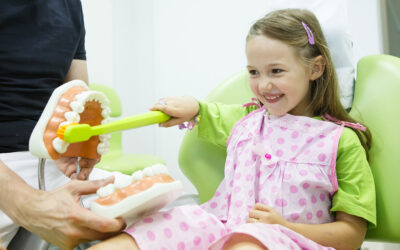Can You Sleep With Dentures?

However, a common question arises among denture wearers: can you sleep with dentures?
Sleeping with Dentures: The Pros
- Comfort and Convenience: Sleeping with dentures might be convenient for those who find it uncomfortable or cumbersome to remove their dentures before bedtime. Leaving dentures in place can save time and hassle, particularly for older individuals who may have mobility issues.
- Enhanced Appearance: Some individuals may prefer to keep their dentures in while sleeping to maintain a natural appearance even during nighttime hours, especially if they share a sleeping space with others.
- Reduced Movement: Dentures that are properly fitted are less likely to move around during sleep, eliminating the fear of accidental displacement.
Sleeping with Dentures: The Cons
- Oral Health Concerns: One of the primary concerns with sleeping in dentures is the potential impact on oral health. Keeping dentures overnight can create a breeding ground for bacteria, leading to bad breath, gum inflammation, and oral infections.
- Pressure Sores: Wearing dentures for an extended period without a break can lead to pressure sores on the gums and soft tissues, causing discomfort and pain.
- Bone Resorption: Removing dentures at night allows the gums and jawbone to rest and recover from the pressure exerted by the dental appliance. Continued pressure on the gums from wearing dentures while sleeping can accelerate bone resorption, which is the natural process of bone loss that occurs when teeth are missing.
Best Practices for Denture Wearers
- Remove Dentures Before Sleep: It is generally recommended to remove dentures before going to bed. This allows the gums and oral tissues to breathe, recover, and minimize the risk of oral health issues.
- Clean and Soak Dentures: Remove and clean your dentures thoroughly before placing them in a denture cleaning solution or plain water overnight. This helps to prevent bacterial buildup and keeps your dentures in good condition.
- Oral Hygiene: Even without natural teeth, oral hygiene is essential. Brush your gums, tongue, and the roof of your mouth with a soft toothbrush before bed and in the morning to keep your mouth clean and fresh.
- Regular Dental Check-ups: Schedule regular appointments with your dentist for check-ups and adjustments to ensure your dentures fit properly and any potential issues are addressed promptly.
FAQs About Sleeping with Dentures
Can I sleep with my new dentures immediately after getting them?
It’s generally recommended to wait a few days before sleeping with new dentures. This allows you to adjust to wearing them during waking hours first.
How should I clean my dentures before sleep?
Use a denture brush or a soft-bristle toothbrush with denture cleaner. Avoid using regular toothpaste, as it can be too abrasive for dentures.
Is it uncomfortable to sleep with dentures?
Some people find it uncomfortable due to potential gum irritation. However, this discomfort can be minimized by practicing good oral hygiene and giving your mouth breaks from denture wear.
Can sleeping with dentures affect my jawbone?
Wearing dentures constantly can contribute to bone resorption over time. Removing them at night gives your jawbone a chance to rest.
How do I store my dentures overnight?
Place your dentures in a denture-cleaning solution or plain water overnight. Make sure to follow the manufacturer’s recommendations for cleaning and storage.
Are there any adhesives for sleeping with dentures?
While some denture adhesives are suitable for extended wear, it’s still recommended to remove your dentures at night for optimal oral health.
Conclusion
While it may be tempting to sleep with dentures for convenience or appearance reasons, it’s important to prioritize your oral health. The cons of sleeping with dentures, such as oral health concerns and potential discomfort, outweigh the perceived benefits.
To maintain a healthy mouth and overall well-being, it’s recommended to remove and properly care for your dentures each night.
Remember, consulting your dentist for personalized advice based on your oral health needs is crucial to make informed decisions about your denture care routine.



